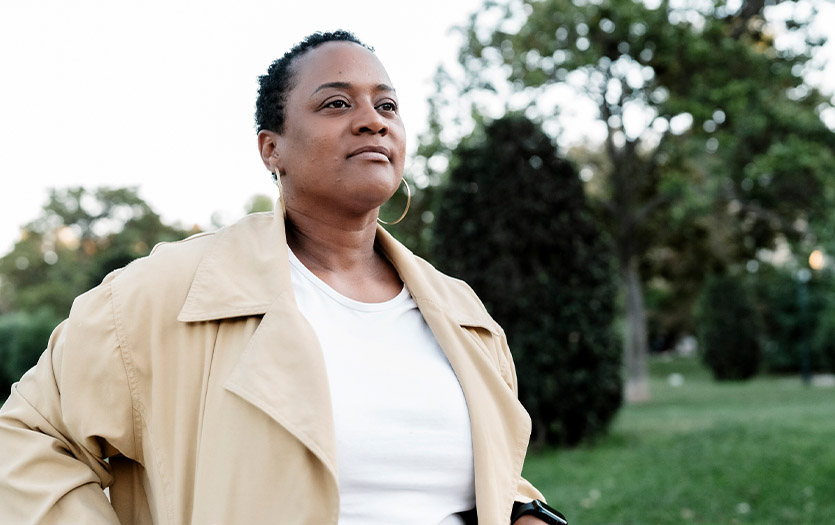
Summer is considered trauma season, but Parkview Health is prepared to treat those unfortunate and unforeseen events, for even our youngest patients. We have certified child life specialists in the Emergency Department who are specifically trained to help children cope, understand and communicate after traumas. Members of this team explain the role of a child life specialist and what parents can expect from their child after a severe health event.
The role of the child life specialist
When a child life specialist is available, they respond to traumas and help the child and family deal with the event. Sometimes, when a child arrives in the ER following a traumatic event, their parents aren’t immediately present. A child life specialist would respond to the patient’s room and stay with the child until a parent arrives and sometimes beyond, if the circumstances call for it.
Child life specialists help the child and family understand what is going on throughout their hospital visit. They talk to the patient in child-friendly language to help explain tests that are being done, things the doctors and nurses are saying, talk about what happened, and so much more.
The emotional side of trauma
Traumas are difficult for everyone involved and reactions to traumas can last longer than expected, sometimes weeks, months or even years. Support from family and friends helps those involved in traumas get through the emotional turmoil. It’s very important to let people involved in traumas deal with the reactions in the time they are ready to deal, not in the time others are ready. Each person is different. Helping patients and families to understand this is one of the main tasks child life specialists hope to accomplish during their interaction with the patient and family.
Common reactions to trauma
After a trauma, people may go through a wide range of normal responses. Such reactions may be experienced not only by people who experienced the trauma first-hand, but by those who have witnessed or heard about the trauma, or been involved with those immediately affected. Many reactions can be triggered by persons, places or things associated with the trauma. Some reactions may appear totally unrelated.
Here is a list of common physical and emotional reactions to trauma, as well as a list of helpful coping strategies. These are normal reactions to abnormal events.
Physical reactions
- Aches and pains like headaches, backaches or stomach aches
- Sudden sweating and/or heart palpitations (fluttering)
- Changes in sleep patterns, appetite or interest in sex
- Constipation or diarrhea
- Easily startled by noises or unexpected touch
- More susceptible to colds and illnesses
- Increased use of alcohol or drugs and/or overeating
Emotional reactions
- Shock and disbelief
- Fear and/or anxiety
- Grief, disorientation and/or denial
- Hyper-alertness or hypervigilance
- Irritability, restlessness, outbursts of anger or rage
- Emotional swings, like crying and then laughing
- Worrying or ruminating – intrusive thoughts of the trauma
- Nightmares
- Flashbacks – feeling like the trauma is happening now
- Feelings of helplessness, panic and/or feeling out of control
- Increased need to control everyday experiences
- Minimizing the experience
- Attempts to avoid anything associated with trauma
- Tendency to isolate oneself
- Feelings of detachment
- Concern over burdening others with problems
- Emotional numbing or restricted range of feelings
- Difficulty trusting and/or feelings of betrayal
- Difficulty concentrating or remembering
- Feelings of self-blame and/or survivor’s guilt
- Shame
- Diminished interest in everyday activities or depression
- Unpleasant past memories resurfacing
- Loss of a sense of order or fairness in the world; expectation of doom and fear of the future
Helpful coping strategies
- Mobilize a support system n reach out and connect with others, especially those who may have shared the stressful event
- Talk about the traumatic experience with empathic listeners
- Cry
- Hard exercise like jogging, aerobics, bicycling and walking
- Relaxation exercise like yoga, stretching or massage
- Humor
- Prayer and/or meditation; listening to relaxing guided imagery; progressive deep muscle relaxation
- Hot baths
- Music and art
- Maintain balanced diet and sleep cycle as much as possible
- Avoid over-using stimulants like caffeine, sugar or nicotine
- Commit to something personally meaningful and important every day
- Hug those you love, pets included
- Eat warm turkey, boiled onions, baked potatoes, cream-based soups. These are tryptophan activators, which help you feel tired but good (like after Thanksgiving dinner)
- Proactively respond toward personal and community safety and organize or do something socially active
- Write about your experience in detail, either just for yourself or to share with others
More information about physical and emotional reactions to traumas, as well as helpful coping strategies, visit revitalizecounselingservices.com.
Resources for parents can be found at healthcaretoolbox.org.



